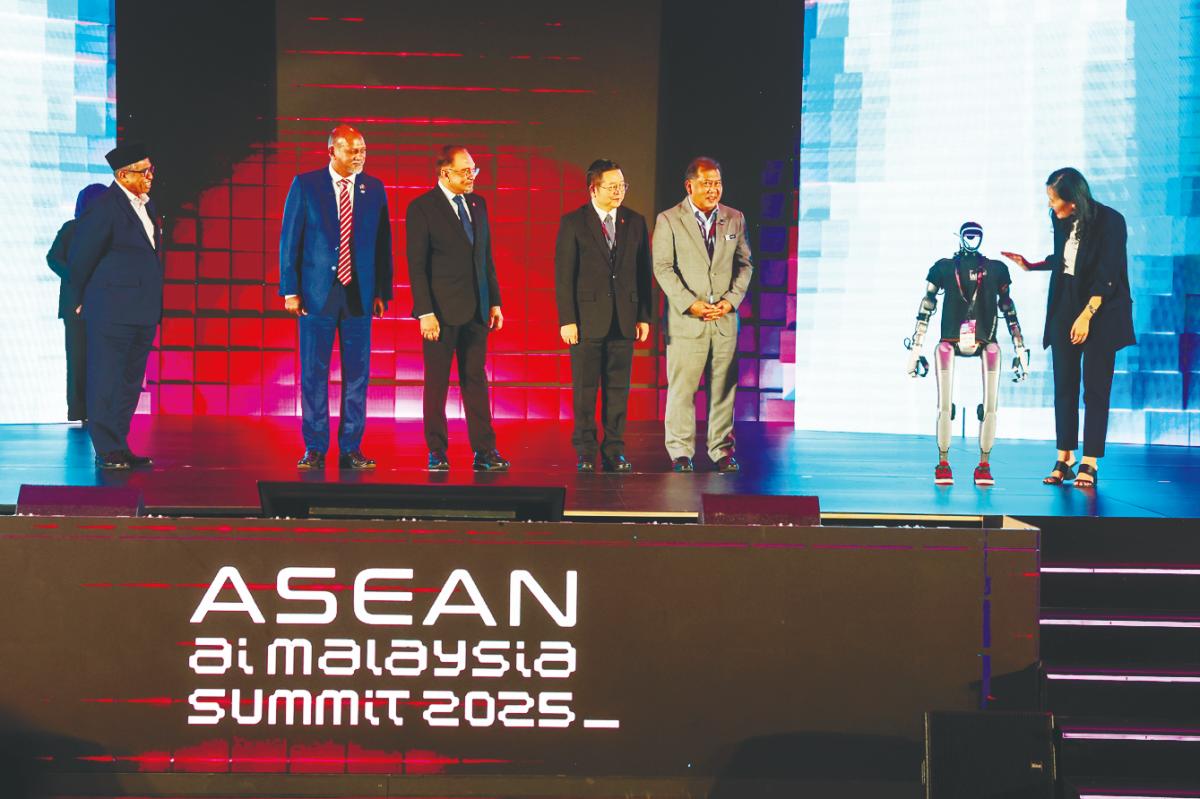KUALA LUMPUR: Malaysia is taking proactive steps to ensure that the promise of artificial intelligence (AI) translates into tangible, inclusive benefits for every citizen.
Digital Minister Gobind Singh Deo said the ministry is leading the change in Malaysia, working to bridge the gap between advanced technology and everyday life – from urban centres to the most remote rural communities and across all sectors.
He said this vision goes beyond innovation, ensuring that AI serves as a tool for progress, opportunity and shared prosperity.
“At the heart of this mission is a determination to close the ‘AI Divide’ – the widening gap between those who have access to AI tools, skills and infrastructure, and those who do not.
“By rolling out AI literacy programmes nationwide, the ministry is empowering Malaysians of all ages and backgrounds, from schoolchildren in rural villages to working professionals in the nation’s cities.
“This holistic approach is designed to democratise access, ensuring that the benefits of AI are not concentrated in the hands of a few but experienced by all,” he told delegates at the opening of Asean AI Malaysia Summit 2025 today.
Gobind said the ministry is working to ensure that AI tools are accessible to startups, SMEs, universities, and even independent researchers, providing everyone across the country with the tools they need to experiment, prototype and scale AI solutions.
He said equally important is the commitment to making AI affordable for all citizens, recognising that access is not only about infrastructure and skills but also about cost.
“Malaysia will work to ensure that AI-powered tools and services are priced and distributed to enable broad adoption, allowing citizens from all income levels to participate in and benefit from the AI-driven economy.
“In many ways, this echoes our recent discussions on connectivity, where concerns about a digital divide prompted us to ensure universal access. Our goal then – as it is now – was to avoid creating a society split between those with access and those without,” Gobind said.
He added that Malaysia’s goal is to ensure that every citizen has both the means and the capacity to engage with AI agents that reflect national values, protect rights, and serve shared interests.
Gobind said this commitment also extends across Asean, where disparities in affordability risk deepening the AI divide, enabling some communities to adopt AI rapidly while leaving others excluded from shaping its trajectory.
“Malaysia is committed to contributing to a regional approach where no member state is left behind.
“This expansion is guided by a strong commitment to sustainability, promoting the development of green data centres that leverage renewable energy, employ advanced cooling technologies, and optimise energy efficiency.
“In doing so, we can meet the growing computational demands of AI while minimising environmental impact, ensuring that digital progress aligns with Malaysia’s climate and energy commitments.
“Importantly, this infrastructure is being built with interoperability in mind, enabling integration with Asean-wide initiatives to create a regional network of accessible, sustainable AI resources. These efforts are not solely about national progress but about advancing the region as a whole,” Gobind said.
He also said that these initiatives form part of a shared Asean commitment, recognising that disparities in compute power, affordability, talent pipelines, and relevant data sets across Southeast Asia risk creating an uneven AI landscape.
By embedding inclusivity into regional strategies, Gobind said, Asean can shape a balanced AI ecosystem where every individual has the opportunity to work, play, learn, and succeed with AI.
Moving on, Gobind said Malaysia is placing trust at the core of its digital transformation through a comprehensive national ecosystem of safeguards, anchored by the government’s commitment to develop the Digital Trust and Data Security Strategy 2026–2030 and to establish an independent data commission to oversee its implementation.
These initiatives will strengthen data protection and governance, enhance cyber resilience, and uphold the integrity of Malaysia’s digital ecosystem, ensuring that progress in AI and digital technologies remains secure, transparent, and accountable.
He said the strategy will also provide a long-term roadmap to counter emerging threats, advance data integrity, and build public confidence in Malaysia’s digital future.
“This national agenda is designed to complement and strengthen Asean’s collective frameworks.
“By aligning safeguards, governance mechanisms, and technical standards with regional counterparts, Malaysia is helping to build a seamless trust ecosystem across Southeast Asia – one that protects data, ensures AI safety and fosters public confidence.
“Through initiatives such as the Asean Guide on AI Governance and Ethics, the Asean AI Safety Network, and the Asean Cybersecurity Cooperation Strategy 2026–2030, our domestic efforts become building blocks for a region-wide trust architecture in this agentic age of AI,“ Gobind said.
He said by working collectively, Asean can grow the AI economy, safeguard societies, and unlock the full potential of innovation, building an AI future that is inclusive, secure, and distinctly Asean.
“This summit sends a clear message: our citizens are partners to the world, and Asean is not waiting for the AI future – we are here to shape it responsibly, together, and on our own terms, with Malaysia ready to work side by side with its neighbours,” he said.
The Asean AI Malaysia Summit 2025 saw the participation of many experts, delegates from government and related agencies, corporates, and experts from Asean and other regions, sharing their ideas, AI tools, and services.









